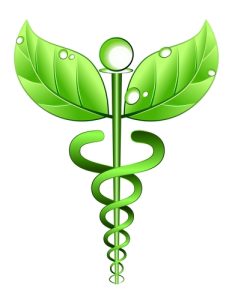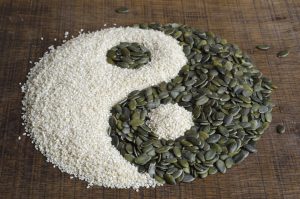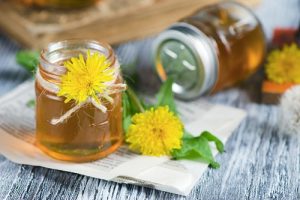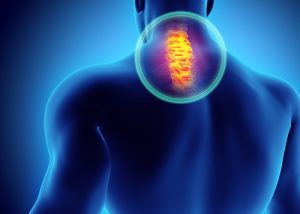Holistic health care represents a comprehensive approach to well-being, considering the intricate interplay between the physical, mental, and spiritual aspects of an individual. This method of healing emphasizes the whole person, not just treating isolated symptoms or diseases. It’s a journey that invites exploration of various practices that contribute to overall health, aiming to achieve balance and flourishing in every dimension of life. AIHCP offers a Holistic Nursing Certification. It is imperative as individuals explore alternative modalities that healthcare professionals with knowledge of holistic care are able to guide them. While Holistic Health is critically important because it is natural, preventative, and supplemental, if it is not properly utilized, it can be counter productive. Hence a trained Holistic and Integrative Health Care Practitioner is key in helping individuals make informed and healthy decisions.

Key Takeaways
- Holistic health care is an all-encompassing approach that addresses the physical, mental, emotional, and spiritual aspects of an individual’s well-being.
- Historically rooted in the teachings of Hippocrates, holistic health practices recognize the body as a system where all parts are interrelated and affect each other.
- Key principles of holistic health include the interconnectedness of body, mind, and spirit, and the importance of individualized, empowering care.
- Holistic health practitioners are trained to nurture the whole person through various integrative and complementary therapies, emphasizing the importance of nutrition and lifestyle.
- Despite challenges such as scientific scrutiny and regulatory issues, holistic health care continues to evolve, incorporating technology and personalized strategies for future advancements.
Foundations of Holistic Health Care
Defining Holistic Medicine
Holistic medicine represents a comprehensive approach to health care that emphasizes the treatment of the whole person rather than isolated symptoms or diseases. It considers the intricate interplay between body, mind, spirit, and emotions, recognizing that each aspect can significantly influence overall well-being. This philosophy is grounded in the belief that all these components are deeply interconnected and that optimal health can only be achieved when they are in harmony.
The scope of holistic medicine is broad, encompassing various treatment modalities that share a common goal: to support the body’s natural healing processes. Among these, herbal medicine utilizes plant-based remedies to promote balance, while functional medicine delves into the complex relationships between the body’s systems to address systemic imbalances. Lifestyle modifications, personalized nutrition, and stress management are also integral to the holistic approach, aiming to enhance the individual’s health holistically.
Holistic medicine is not a one-size-fits-all solution; it is tailored to the unique needs and circumstances of each individual. By focusing on prevention and the root causes of health issues, holistic practitioners strive to foster long-term wellness rather than providing temporary relief from symptoms.
Historical Perspectives on Holistic Practices
The concept of holistic health care is not a modern invention but has deep historical roots. Holistic practices have been integral to various traditional healing systems across the world, each with its unique philosophy and methods. For instance, the principles of Ayurveda in India emphasize the balance among body, mind, and spirit, and have been in practice for over 5,000 years.
In the Western context, holistic ideas can be traced back to ancient Greece, where Hippocrates, the father of medicine, advocated for a balanced lifestyle and the healing power of nature. Moving forward in history, the 18th century saw the emergence of homeopathy, founded by Samuel Hahnemann in Germany. This system of medicine is based on the principle that ‘like cures like’, and it remains a popular complementary approach today.
The evolution of holistic health care reflects a continuous search for healing methods that consider the entire person rather than focusing solely on the disease.
Throughout the ages, holistic health care has evolved, adapting to cultural and societal changes while retaining its core objective of treating the individual as an interconnected whole. The table below outlines some key historical milestones in holistic medicine:
| Era | System | Key Contributor | Principle |
|---|---|---|---|
| Ancient India | Ayurveda | – | Balance among body, mind, spirit |
| Ancient Greece | Hippocratic Medicine | Hippocrates | Balance, healing power of nature |
| 18th Century Germany | Homeopathy | Samuel Hahnemann | ‘Like cures like’ |
Key Principles of Holistic Health Care
Holistic health care is grounded in the belief that optimal health is not merely the absence of disease, but a dynamic state of complete physical, mental, emotional, and spiritual well-being. The core of holistic health care is the interconnectedness of these aspects of health, and the understanding that each component can affect the whole.
- Preventative health and long-term goals are central to the holistic approach, emphasizing the importance of preventing illness and maintaining long-term health over merely treating symptoms as they appear.
- Education and empowerment are also key, as individuals are encouraged to make informed choices about their health and take an active role in their healing journey.
- Individualized care is a hallmark of holistic practice, recognizing that each person’s path to health is unique and requires a tailored approach.
Holistic health care seeks to create a balanced approach to well-being, where the goal is not just the absence of disease, but a flourishing of the whole person. This integrative perspective is what sets holistic health apart from conventional medical practices. It is important to have a trained holistic and integrative health care practitioner, or holistic nurse guiding individuals to help them make informed and safe decisions regarding holistic health.
Components of Holistic Healing

The Interconnectedness of Body, Mind, and Spirit
At the core of holistic health care lies the fundamental belief that the body, mind, and spirit are not isolated systems but are deeply interconnected and influence one another. Holistic health is a movement that believes the mind, body and spirit are intricately interconnected and aims to nurture the collaboration between all three, fostering a balanced state of well-being. This interconnectedness suggests that imbalances in one aspect can manifest as physical or emotional symptoms in another.
Holistic psychology integrates this concept by synthesizing the relationship between these elements, addressing how issues in one area can lead to complications elsewhere. For instance, chronic stress, a mental condition, can lead to physical manifestations such as hypertension or a weakened immune system. Conversely, physical ailments can impact mental health, leading to anxiety or depression.
Holistic healing practices, therefore, focus on aligning and harmonizing the body, mind, and spirit to promote self-healing. The approach is not just about treating symptoms but about empowering individuals to take charge of their health and well-being. This empowerment is a key aspect of the holistic health revolution, where the emphasis is on autonomy and the practitioner-client relationship is collaborative.
The holistic approach to health care is transformative, aiming to optimize health by recognizing the person as a whole, rather than a sum of parts.
Physical Health and Its Role in Holism
In the realm of holistic health care, physical health is not viewed in isolation but as an integral component that interacts with mental, emotional, and spiritual well-being. Physical activity is recognized as a vital piece in the holistic health puzzle, contributing significantly to the prevention and management of disease. The interconnectedness of various health aspects means that a deficiency in physical health can reverberate through other areas of an individual’s life.
A holistic approach to physical health encompasses a variety of factors, including:
- A balance of a nutritious diet and healthy lifestyle habits.
- Regular exercise and stress management.
- Adequate hydration and mental health considerations.
- Awareness and reduction of exposure to environmental toxins.
Preventative health and long-term goals form the cornerstone of holistic healing. By focusing on prevention and setting achievable health goals, holistic health care aims to optimize overall well-being rather than merely addressing symptoms as they arise.
Education and empowerment are key in holistic health, with individuals encouraged to make informed choices about their health. This empowerment is rooted in a comprehensive understanding of how lifestyle factors such as nutrition, sleep, and rejuvenation needs intertwine with one’s health history and genetics.
Mental and Emotional Well-being in Holistic Practice
In the realm of holistic health care, mental and emotional well-being are considered inseparable from physical health. Holistic therapy integrates various aspects of an individual’s life to promote overall well-being. This approach acknowledges the profound impact that mental and emotional states have on the body and vice versa.
Holistic practices recognize the importance of emotional balance and mental clarity in achieving optimal health. By addressing the interconnectedness of the mind and body, holistic practitioners aim to facilitate a harmonious state of health.
Holistic psychology places a strong emphasis on self-reflection and awareness, enabling clients to discern the interplay between their emotions, thoughts, physical sensations, and spiritual beliefs. The challenge lies in devising interventions that cater to the entirety of an individual’s experience.
- Collaborative client-practitioner approach
- Empowerment and self-awareness
- Addressing the mind-body-spirit connection
- Emphasis on prevention and sustainable wellness
Evidence suggests that holistic therapies can effectively manage emotions, alleviate cognitive impairments, and improve social, spiritual, and physical functions. These therapies are not limited to common mental health issues but are also beneficial for severe psychiatric conditions.
Spiritual Dimensions of Health
The spiritual aspect of health is often the most abstract, yet it is a critical component of holistic health care. It encompasses a sense of connection to something larger than oneself, and can involve values, beliefs, and purpose. This dimension contributes to a person’s overall well-being and can influence both their physical and mental health.
- Recognition of a deeper meaning in life
- The pursuit of spiritual growth
- Practices such as meditation, prayer, or mindfulness
- Respect for one’s own and others’ beliefs and values
The integration of spiritual health into holistic care is not about adhering to a specific religion or belief system, but rather about acknowledging and supporting the individual’s spiritual journey as part of their overall health.
Understanding and addressing spiritual health can lead to improved coping mechanisms, a stronger sense of peace and contentment, and a more profound sense of personal well-being. It is essential for holistic health practitioners to create a safe and supportive environment where clients can explore their spirituality as part of their path to health.
Approaches to Holistic Health Care

Integrative Medicine Techniques
Integrative medicine represents a harmonious blend of evidence-based and experiential therapies, striving to treat the individual as a whole. It emphasizes a patient-focused approach that considers the myriad of physical, emotional, social, spiritual, and environmental influences on health. This method fosters a partnership between practitioner and patient, often involving a diverse team of healthcare providers.
The techniques employed in integrative medicine range from conventional Western medical practices to alternative therapies. For instance, Mayo Clinic’s massage therapists are trained in techniques such as acupressure, reflexology, and craniosacral therapy, among others. The goal is to increase patient involvement and enhance overall well-being, while also being mindful of the criticisms regarding the potential for ‘bad science’ to impact clinical judgment.
Integrative medicine has been shown to improve patient engagement and well-being, yet it remains essential to balance experiential knowledge with rigorous scientific scrutiny.
While integrative medicine offers numerous benefits, it is not without risks. It is crucial for patients to consult with qualified healthcare professionals to ensure that any integrative techniques used are safe and appropriate for their specific health conditions.
Complementary and Alternative Therapies
Complementary and alternative therapies (CAT) encompass a diverse range of practices that fall outside the realm of conventional Western medicine. These therapies are often integrated with standard medical treatments to provide a more comprehensive approach to healing.
CAT includes a variety of modalities such as acupuncture, herbal medicine, and mind-body techniques. The choice of therapy is typically influenced by the individual’s unique health needs and preferences. Below is a list of some commonly used complementary and alternative therapies:
- Acupuncture
- Chiropractic care
- Herbal medicine
- Homeopathy
- Naturopathy
- Osteopathy
- Tai chi and Qi gong
- Yoga and meditation
The utilization of CAT requires careful consideration of the individual’s overall health picture, as well as the potential for interactions with conventional treatments. It is essential for healthcare providers to be informed about the patient’s use of these therapies to ensure safe and coordinated care.
Despite the growing popularity of CAT, there remains a need for more rigorous scientific research to validate the efficacy and safety of many of these practices. While some therapies have been well-studied and integrated into mainstream healthcare, others lack a substantial evidence base. This gap in knowledge presents a challenge for healthcare professionals and patients alike when making informed decisions about the use of complementary and alternative therapies.
The Role of Nutrition and Lifestyle in Holistic Health
In the realm of holistic health care, nutrition and lifestyle are pivotal elements that work synergistically to promote overall well-being. A balanced diet, coupled with healthy lifestyle habits such as regular exercise, stress management, and adequate hydration, forms the cornerstone of a holistic approach to health. These practices are not isolated; they are part of a larger picture that includes mental health and environmental factors, all contributing to an individual’s health history and genetic predispositions.
Holistic living promotes overall physical health through balanced nutrition, regular exercise, and sufficient rest. This approach enhances energy levels and fosters a sense of vitality that permeates through all aspects of life.
Preventative health measures and setting long-term wellness goals are fundamental to holistic healing. Rather than focusing solely on treating symptoms, holistic health emphasizes the importance of making informed choices and taking proactive steps to prevent chronic health conditions. Education plays a crucial role in this process, empowering individuals to take ownership of their health and behavior changes for improved mental, emotional, and spiritual well-being.
The Holistic Health Care Practitioner

Training and Expertise
The path to becoming a holistic health care practitioner is marked by rigorous training and the acquisition of specialized expertise. Holistic health care encompasses a broad spectrum of practices, each requiring its own set of skills and knowledge. Practitioners often pursue extensive education, including undergraduate and graduate degrees, followed by certifications in their chosen modalities. AIHCP offers a four year certification for nurses to become certified Holistic Nurses. Holistic Nurses can guide patients and clients in making safe and healthy decisions regarding their health with holistic modalities. Holistic Nurses can ensure certain remedies do not contradict or counteract medications already being taken as well as help clients choose proper doses and remedies for better prevention.
The coordination of care and sharing of information are central to good integrative medicine.
Accreditation plays a critical role in ensuring the quality and reliability of holistic health care. Prospective clients are advised to seek out practitioners who have obtained credentials from recognized institutions. The table below outlines common credentials and their respective fields:
| Credential | Field of Practice |
|---|---|
| ND | Naturopathic Medicine |
| LAc | Acupuncture and Oriental Medicine |
| CMT | Massage Therapy |
| RYT | Yoga Therapy |
It is essential for clients to collaborate with their primary care providers when integrating holistic approaches, ensuring a seamless and effective health care experience.
The Practitioner-Client Relationship
In the realm of holistic health care, the dynamic between the practitioner and the client is fundamentally collaborative. The patient and practitioner are partners in the healing process, engaging in a mutual exchange where both parties contribute to the journey towards wellness. This partnership is built on trust, respect, and a shared commitment to achieving health goals.
The therapeutic alliance in holistic health care transcends the conventional doctor-patient hierarchy, fostering a more egalitarian and personalized approach to treatment.
Key elements of this relationship include:
- Mutual participation and shared decision-making
- Consideration of the client’s physical, emotional, social, spiritual, and environmental influences
- Integration of both conventional and alternative medical practices
- Emphasis on natural and less invasive treatments
- Critical evaluation of alternative therapies alongside conventional ones
The practitioner-client relationship is not static; it evolves as treatment progresses, adapting to the client’s changing needs and circumstances. For instance, the initial stages of treatment focus on building trust and awareness of the body, which can lead to a deeper exploration of emotional states and their impact on health. AIHCP’s certified Holistic Nurses can play a key role in ensuring these dynamics of the practitioner-client relationship are met.
Ethical Considerations in Holistic Practice
In the realm of holistic health care, ethical considerations play a pivotal role in guiding the actions and decisions of practitioners. Ethical practice is fundamental to gaining and maintaining the trust of clients in a field where treatment approaches can vary widely and are often deeply personal. Holistic practitioners must navigate a complex landscape of ethical dilemmas, from respecting patient autonomy to ensuring informed consent for alternative therapies.
Holistic health care professionals are tasked with the responsibility of balancing traditional medical ethics with the unique aspects of holistic modalities. This includes being transparent about the evidence supporting various treatments and acknowledging the limits of their expertise.
Ethical practice in holistic health care also involves continuous professional development to stay abreast of the latest research and advancements in the field. Practitioners must be vigilant in discerning the line between offering hope and providing realistic expectations to their clients. Below is a list of key ethical considerations:
- Upholding patient confidentiality and privacy
- Avoiding conflicts of interest
- Ensuring cultural competence and sensitivity
- Promoting evidence-based practices alongside holistic methods
- Prioritizing patient safety and welfare
These ethical tenets are essential for fostering a therapeutic environment where clients feel respected, informed, and empowered to make decisions about their health care.
Challenges and Criticisms of Holistic Health Care

Scientific Scrutiny and Evidence-Based Practice
The integration of holistic health care within the broader medical community is often met with scientific scrutiny. Conventional medicine is firmly rooted in evidence-based practice, which relies on rigorous clinical trials and peer review processes. This scientific approach ensures that treatments are both safe and effective before they are widely adopted. Holistic health care, however, sometimes incorporates practices that have not undergone the same level of scrutiny, leading to debates about their validity and place in mainstream medicine.
The following points highlight the core aspects of evidence-based practice in medicine:
- Alternative therapies are not accepted uncritically.
- Good science is the cornerstone of good medicine.
- Health promotion and disease prevention are as important as treatment.
- Practitioners are committed to ongoing self-exploration and self-development.
While holistic approaches are valued for their emphasis on the whole person and preventive care, the balance between experience-based and evidence-based care remains a critical area of discussion. Critics argue that without sufficient scientific validation, there is a risk of anecdotal evidence and pseudoscience influencing clinical judgment, potentially compromising patient safety and treatment efficacy.
Navigating Misconceptions and Skepticism
Holistic health care often encounters skepticism, primarily due to misconceptions about its practices and outcomes. Addressing these misconceptions is crucial for the acceptance and integration of holistic methods into mainstream health care. Skeptics may view holistic therapies as unscientific or ineffective, not realizing that many holistic practitioners uphold rigorous standards of evidence and scientific inquiry.
- Misconception: Holistic therapies lack scientific basis.
- Reality: Many holistic practices are supported by research and clinical studies.
- Misconception: Holistic health care is a ‘one-size-fits-all’ approach.
- Reality: Treatments are highly personalized, taking into account the individual’s unique needs.
- Misconception: Holistic methods are a substitute for conventional medicine.
- Reality: They are often used complementarily, enhancing overall care.
The journey from skepticism to acceptance is marked by education and experience. As individuals witness the benefits firsthand, the value of holistic health care becomes more apparent. This transition is not just anecdotal; it is reflected in the growing body of research that supports holistic practices.
It is important to engage in open dialogues, providing clear and accessible information to demystify holistic health care. By doing so, practitioners can foster a more informed public perception, paving the way for holistic methods to be recognized as a legitimate component of comprehensive health care.
Regulatory and Standardization Issues
The landscape of holistic health care is marked by a diverse array of practices and practitioners, which presents unique challenges in terms of regulation and standardization. The education and accreditation requirements for these providers vary widely, as does the regulation of certain specialties. This variability can lead to difficulties in ensuring consistent quality of care and safety for patients.
In the realm of holistic health care, the coordination of care and sharing of information are central to good integrative medicine. However, without standardized protocols, this becomes a complex task. Patients are advised to seek out accredited specialists and work in conjunction with their primary care providers.
The absence of uniform standards across holistic health disciplines complicates the establishment of a cohesive regulatory framework.
Furthermore, the integration of emerging technologies such as AI in healthcare poses additional ethical and regulatory challenges. These technologies must adhere to strict regulatory standards concerning safety, accuracy, and effectiveness before they can be widely adopted.
Case Studies in Holistic Healing

Successful Integrations of Holistic Modalities
The integration of holistic modalities with conventional medicine has been a cornerstone in achieving enhanced health outcomes. At the forefront of this integration is the concept of synergy, where complementary therapies are combined with medical treatments to support the patient’s overall well-being. For example, at Just Hope Healing Center, Light Therapy is used alongside chemotherapy to mitigate side effects and boost energy levels, exemplifying a harmonious blend of care approaches.
Holistic psychology represents another facet of successful integration. It synthesizes the intricate relationship between mind, body, and spirit, addressing how disturbances in one area can ripple through to others. This approach fosters a collaborative environment where clients gain insight into the interconnected nature of their health.
The diversity of holistic practices allows for personalized care tailored to individual needs. Whether it’s forest bathing or expressive arts therapy, the key is to find the modality that resonates with the person’s unique situation.
The table below outlines some of the holistic therapies that have been effectively integrated with traditional medical practices:
| Holistic Therapy | Complementary to | Observed Benefits |
|---|---|---|
| Light Therapy | Chemotherapy | Reduces side effects, improves energy |
| Breathwork | Psychotherapy | Enhances mental clarity, reduces stress |
By examining case studies from clinics that have successfully implemented these integrative practices, we can glean valuable insights into the potential for holistic care to improve health outcomes.
Learning from Holistic Health Care Failures
While holistic health care offers a comprehensive approach to well-being, it is not without its setbacks. Learning from failures within holistic practices is crucial for the evolution and improvement of care. Failures often provide valuable insights into the limitations and areas for enhancement within the holistic health paradigm.
Failures in holistic health care can stem from a variety of factors, including miscommunication, lack of integration with conventional medicine, and insufficient emphasis on prevention.
For instance, a case study from WebM&M: Case Studies | PSNet illustrates how a breakdown in communication amongst providers can lead to medical errors. This example underscores the importance of clear and consistent communication in a multidisciplinary health care setting. Additionally, the integration of holistic practices with conventional medicine is essential to achieve better health outcomes. A failure to integrate can result in missed opportunities for comprehensive care.
- Emphasis on prevention is a cornerstone of holistic medicine. Failures may occur when this aspect is not adequately addressed, leading to a reactive rather than proactive approach to health.
- Education and informed choices are critical. Without proper knowledge, clients may not fully engage in the lifestyle changes necessary for holistic well-being.
- Ownership of behavior change is vital. Clients must take an active role in their health, and failures can highlight where support and guidance are lacking.
Patient Narratives and Testimonials
The incorporation of patient narratives and testimonials into the holistic health care framework serves as a powerful tool for understanding the multifaceted impact of treatments. Patient stories are not just anecdotes; they are data that provide insight into the effectiveness and personal significance of holistic practices. These narratives often reveal the nuances of patient experiences that quantitative measures may overlook.
- Embracing patient stories: The benefits of narrative medicine
- We learn personal details when we ask questions about our patients’ medical, social and family histories
- Depending on the rapport we develop, the process by which we gather these stories can be as therapeutic as the treatments we prescribe
The value of patient testimonials lies in their ability to humanize the data and bring to light the lived experiences behind the numbers. They offer a qualitative dimension that enriches our understanding of health and healing.
By systematically collecting and analyzing patient narratives, practitioners can identify patterns and themes that inform more personalized and effective care strategies. This qualitative approach complements the quantitative data, leading to a more comprehensive view of patient outcomes.
The Future of Holistic Health Care
Innovations in Treatment and Therapy
The landscape of holistic health care is continually evolving, with new hope for those seeking non-invasive alternatives to traditional treatments. Cutting-edge therapies are being introduced, such as Electro Microcurrent Therapy, which accelerates healing by mimicking the body’s natural electrical signals.
Innovative technologies like the NeuroVIZR and Qeet Technology are also making waves, optimizing the body’s energy fields to improve health conditions. These advancements are not only enhancing therapeutic outcomes but also expanding the scope of what’s possible in holistic care.
The integration of Artificial Intelligence (AI) in mental health care marks a significant shift, improving diagnostic accuracy and the delivery of therapeutic interventions. This revolution in AI therapy is a testament to the dynamic nature of holistic health care, adapting to the needs of the modern world.
As we embrace these innovations, it’s crucial to consider their implications on the practitioner-client relationship and the ethical considerations that arise with the use of advanced technology in health care.
The Expanding Role of Technology
The integration of technology in holistic health care is not just an emerging trend; it is rapidly becoming a cornerstone of practice. Telemedicine evolution is one such example, allowing practitioners to extend their reach and provide care to patients regardless of geographical barriers. Similarly, the incorporation of AI and ML integration into diagnostic and therapeutic processes is enhancing the precision and personalization of treatments.
Another significant technological advancement is the development of hyper-personalized medicine. This approach tailors treatment plans to the individual’s unique genetic makeup, lifestyle, and health history, promising more effective outcomes. Technologies like Electro Microcurrent Therapy, which aligns with the body’s natural electrical signals, exemplify the synergy between modern tech and traditional healing modalities.
The relentless pursuit of innovation in holistic health care is evident in the adoption of advanced therapies. These technologies are not only revolutionizing pain management but also broadening the spectrum of available treatments, thus offering a more comprehensive approach to well-being.
The table below highlights some of the key technological trends revolutionizing holistic health care in 2024:
| Trend | Description |
|---|---|
| Telemedicine | Expanding access to care through remote consultations |
| AI & ML | Improving diagnostic accuracy and treatment personalization |
| Electro Microcurrent Therapy | Accelerating healing and reducing pain with electrical signals |
| Biomagnetic Therapy | Utilizing magnetic fields for therapeutic benefits |
Predictions and Trends in Holistic Practices
As the global wellness market continues to expand, reaching an estimated $1.8 trillion by 2024, holistic health care is poised to evolve significantly. The United States alone accounts for a substantial portion of this market, with predictions of continued growth at a rate of 5 to 10 percent. This growth is fueled by a science- and data-backed approach to wellness, indicating a future where holistic practices are increasingly validated by empirical research.
The integration of technology in holistic health care is a key trend, with digital platforms and mobile apps becoming more prevalent in managing wellness. These tools offer personalized health insights and facilitate remote health monitoring, making holistic care more accessible and tailored to individual needs.
- Innovations in treatment: New therapies and modalities are emerging, blending ancient wisdom with modern science.
- Data-driven personalization: The use of big data and AI to customize health plans is on the rise.
- Expanded access: Telehealth and online resources are democratizing holistic health care.
The emphasis on prevention and education in holistic health care is expected to strengthen. Clients are empowered to take ownership of their health, making informed choices that enhance their well-being across all dimensions.
As holistic health care continues to intersect with mainstream medicine, the focus on comprehensive, client-centered care will likely become a standard across the health care industry.
Implementing Holistic Health Strategies

Creating Personalized Holistic Health Plans
The creation of a personalized holistic health plan is a collaborative process between the practitioner and the client, tailored to meet the individual’s unique health needs and goals. It begins with a comprehensive assessment of the client’s health history, lifestyle, and preferences. This foundation allows for the development of a plan that not only addresses immediate health concerns but also promotes long-term well-being. AIHCP’s Holistic and Integrative Health Care Practitioner can play a key role in helping clients personalize and find the right modalities based on their health and plan.
Key components of a personalized health plan may include:
- Goal setting and progress monitoring
- A balanced approach to nutrition and lifestyle
- Strategies for stress management and mental health
- Consideration of environmental factors and genetics
The emphasis is on preventative health and the empowerment of the client to make informed choices and adopt healthy behaviors that contribute to their overall health and happiness.
The benefits of such an approach are manifold, including the prevention of chronic health conditions and the fostering of self-care skills that clients can carry with them throughout their lives. By focusing on education and informed decision-making, holistic health plans are not just about treating symptoms but nurturing a healthier, more balanced life.
Community and Cultural Considerations
In the realm of holistic health care, the significance of community and cultural considerations cannot be overstated. Cultural beliefs and practices play a pivotal role in shaping an individual’s approach to health and wellness. For instance, certain communities may emphasize the use of traditional herbs and rituals as part of their healing process, while others might prioritize meditation and spiritual alignment.
- Understanding the cultural context of health beliefs and practices is essential for holistic practitioners.
- Tailoring health interventions to align with cultural values can improve patient engagement and outcomes.
- Recognizing and respecting diversity in healing traditions fosters a more inclusive approach to health care.
It is crucial for holistic health care providers to engage with the community to gain insights into the collective wisdom and practices that have been nurtured over generations. This engagement not only enriches the therapeutic process but also ensures that care is respectful and relevant to the patients’ cultural backgrounds.
Incorporating community and cultural considerations requires a thoughtful and informed approach. Practitioners must be willing to learn from and adapt to the diverse cultural landscapes of their clients, which may involve continuous education and community involvement. This commitment to cultural competence is a cornerstone of effective holistic health care.
Educational Outreach and Advocacy
Educational outreach and advocacy are pivotal in making holistic healthcare available to all. By disseminating knowledge and fostering awareness, communities can break down barriers to access and empower individuals to take charge of their health.
Holistic health education initiatives often include workshops, webinars, and community healthcare days. For instance, the Hudson Valley in NY hosts Community Holistic Healthcare Days, where practitioners volunteer their services. This model of community engagement not only educates but also provides direct benefits to participants.
Holistic health advocacy also involves promoting the integration of diverse healing modalities into mainstream healthcare. Advocates work towards policy changes, increased funding for holistic practices, and the inclusion of holistic health in educational curricula.
To illustrate the scope of educational activities, below is a list of resources and events that support holistic health education:
- Virtual nutrition counseling
- Dietitian continuing education
- Wild Week of Webinars (WWOW24)
- Calendar of Events
- Healthcare Days
- Diversity Initiative
Embarking on a journey towards holistic health requires a comprehensive approach that integrates various health strategies. Our certification program offers a wealth of resources and guidance for those looking to enhance their practice with holistic and integrative health care techniques. To learn more about our offerings and how you can become a Certified Specialist in Holistic & Integrative Health Care, visit our website and explore the possibilities for professional growth and personal well-being. Take the first step today and access our full program to begin your transformative journey. AIHCP’s Holistic and Integrative Health Care Practitioner is online and independent study and open to qualified nurses. Holistic Nursing will remain an important field as individuals continue to look for alternative or supplemental ways to improve their health.
CONCLUSION

In summary, holistic health care represents a profound shift from conventional medical practices, focusing on the integration of the body, mind, spirit, and emotions to achieve overall well-being. It is not merely about the absence of disease but about fostering an environment where all aspects of an individual can flourish. The information presented in this article underscores the importance of a personalized and comprehensive approach to health that honors the interconnectedness of various facets of our lives. Holistic health care is not just a method of treatment; it is a journey towards achieving a balanced and harmonious state of health that empowers individuals to take an active role in their healing process. As we continue to explore the multifaceted benefits of holistic practices, we open ourselves to new possibilities for wellness and a more vibrant life. Again, remember to review AIHCP’s Holistic Nursing Program and see if it meets your academic and professional goals.
Frequently Asked Questions
What is holistic health care?
Holistic health care is an approach to wellness that addresses the physical, mental, emotional, social, and spiritual components of health, focusing on treating the whole person rather than just individual symptoms.
How does holistic medicine differ from conventional medicine?
Holistic medicine considers the entire body, including body, mind, spirit, and emotions, and aims to restore balance and harmony for overall well-being, while conventional medicine typically focuses on treating specific illnesses or injuries.
What are the key principles of holistic health care?
The key principles include treating the whole person, fostering a partnership between practitioner and client, considering all factors that influence health, and promoting self-care and empowerment.
Can holistic health care be integrated with traditional medical treatments?
Yes, holistic health care can complement traditional medical treatments through integrative medicine techniques, which combine conventional and alternative therapies for optimal health.
What role does nutrition play in holistic health?
Nutrition is a fundamental component of holistic health, as it provides the body with the necessary resources for healing and maintaining balance among the body’s systems.
What types of therapies are considered holistic?
Holistic therapies include a wide range of practices such as acupuncture, massage, meditation, yoga, herbal remedies, and nutrition counseling, among others.
How does holistic healing promote mental and emotional well-being?
Holistic healing recognizes the interconnectedness of the mind and body and uses techniques that help regulate the nervous system, reduce stress, and foster emotional balance.
What should I expect from a visit to a holistic health care practitioner?
A visit to a holistic health care practitioner typically involves a comprehensive assessment of your physical, mental, emotional, and spiritual health, followed by a personalized treatment plan that may include various holistic therapies.
Additional Resources
Mayer, B. (2022). “Holistic Therapy: Treating Body, Mind, and Spirit for Whole Person Healing”. Healthline. Access here
Marks, H. (2023). “What Is Holistic Medicine and How Does It Work?”. WebMD. Access here
Cherry, K.. (2023). “Is Holistic Therapy Right for You?”. Very Well Mind. Access here
“Whole Person Health: What You Need To Know”. National Center for Holistic and Complementary Health. Access here
Cronkleton, E. (2023). “Conventional vs. complementary medicine: Differences”. Medical News Today. Access here




